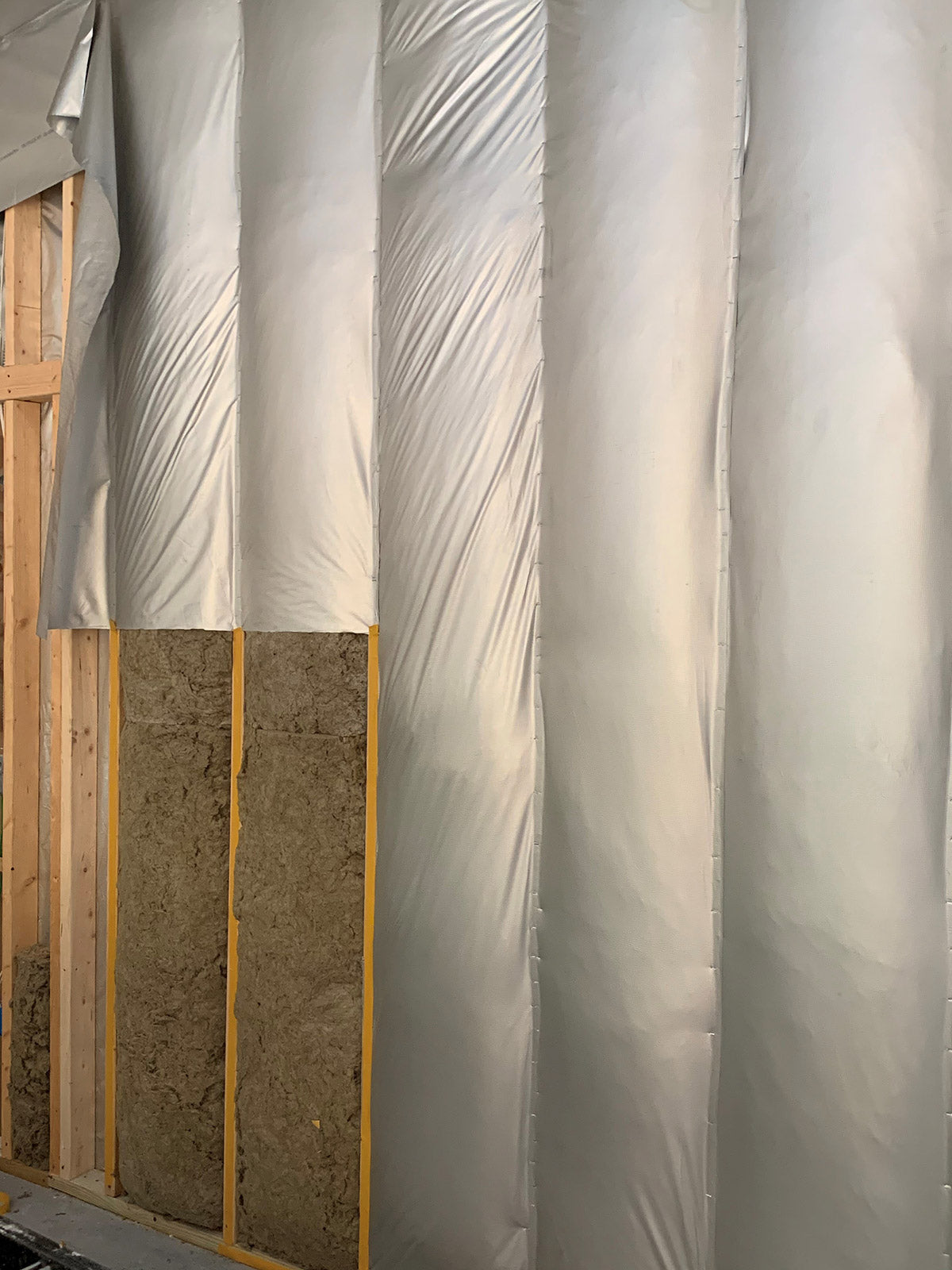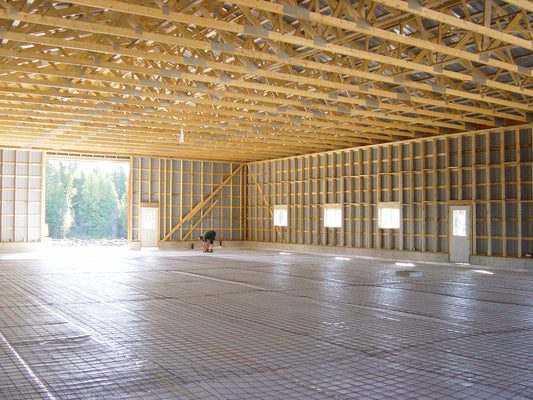In construction, materials that improve building performance without complicating the install increase ROI. EcoFoil’s Radiant Barrier delivers on both fronts, making it a go-to product for builders focused on energy efficiency, faster builds, and long-term results for their clients.
Why Builders Choose Radiant Barriers
High-performance homes aren’t just about what goes inside the walls, they start at the roofline. Radiant barriers reflect radiant heat from the roof deck, keeping attics significantly cooler and reducing strain on HVAC systems.
For your clients, that means lower energy bills. For you, it’s an easy upgrade that adds real value to your projects, residential, commercial, or agricultural.
Plus, Radiant Barrier is available in both perforated and solid for different installations.
EcoFoil Radiant Barrier: Built for Jobsite Realities
This isn’t flimsy foil. EcoFoil’s Radiant Barrier is a double-sided aluminum foil sheet laminated to an industrial-strength scrim for tear resistance and durability during installation.
- 97% heat reflectivity – improves attic thermal performance
- Perforated & Non-perforated – ideal for vented attic and roof deck installs
- Clean to handle – no fiberglass or airborne irritants
- Fast install – staple or tack directly to rafters, wall studs, or sheathing
Choosing the Right Radiant Barrier
Whether you’re framing a custom home, insulating a metal building, or adding efficiency to an agricultural shed, radiant barriers are a simple way to control heat transfer. But not all radiant barriers are built the same, and choosing the right type matters.
EcoFoil offers two options: Solid and Perforated radiant barriers. Both reflect up to 97% of radiant heat, but each is designed for different installation environments and moisture conditions. Use the comparison below to determine which one fits your build.
Radiant Barrier Use Case Comparison
| Application Area | Solid Radiant Barrier (SKU: EF-AB-48-500S) |
Perforated Radiant Barrier (SKU: EF-RB-48-500P) |
|---|---|---|
| Attic (Open-Air/Vented) | ✔️ When a vapor barrier is needed | ✔️ Recommended Tiny perforations prevent moisture buildup |
| Roof Deck (New Construction or Retrofit) | ✔️ Ideal Acts as both radiant and vapor barrier |
✖️ Not recommended |
| Wall Cavities (Behind Drywall or Sheathing) | ✔️ Excellent vapor and radiant control | ✖️ Not recommended |
| Floors & Crawl Spaces | ✔️ Best choice Vapor barrier helps block ground moisture |
✖️ Not applicable |
| Metal Buildings, Garages, Workshops | ✔️ Preferred Durable with added moisture protection |
➖ Only in ventilated applications |
| Pole Barns & Agricultural Sheds | ✔️ Use when moisture protection is critical | ✔️ For ventilated structures without vapor concerns |
| Need for Vapor Barrier | ✔️ Yes | ✖️ No – Breathable |
Still not sure which to choose? Here's the rule of thumb: Use Solid where you want both radiant heat reflection and vapor protection. Use Perforated where ventilation exists and moisture needs to escape, like open attics.
Shop Solid Radiant Barrier or Shop Perforated Radiant Barrier
Benefits That Make You Stand Out
Today’s clients are asking more questions about energy performance. Builders who lead with energy-conscious solutions like radiant barriers gain a competitive edge and build long-term trust.
- Reduces attic temps by up to 30°F
- Helps HVAC systems run more efficiently
- Supports code compliance for energy efficiency
- Lowers call-backs related to hot/cold complaints
Fast, Clean Install with Pro-Grade Results
No special tools. No messy insulation. Just unroll, staple in place, and move on. You’ll find it easy to integrate into your existing workflow without extending project timelines.
See the Barrier in Action
Watch how EcoFoil’s radiant barrier holds up under heat in this quick demo:
Start Building Smarter
Adding EcoFoil radiant barriers to your builds is a simple, low-cost way to deliver higher efficiency and better client outcomes. It’s a product that performs, on the job and long after the build is complete.
Shop EcoFoil Solid Radiant Barrier today and bring greater efficiency to your next project.
















